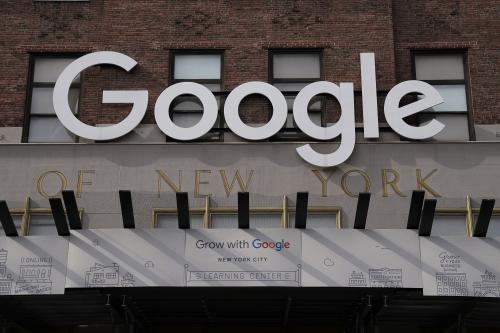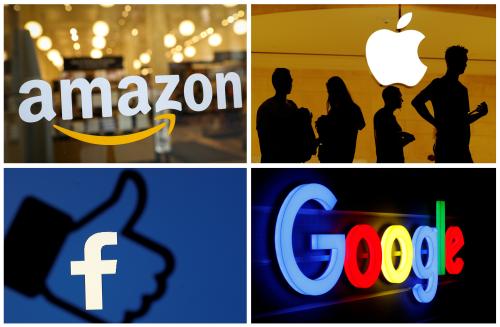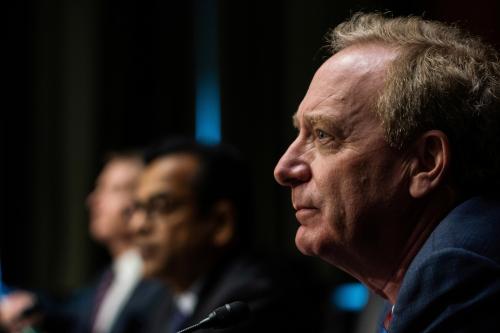A federal district court judge’s dismissal of the Federal Trade Commission’s antitrust lawsuit brought against Facebook is graphic evidence that antitrust laws are not sufficient to protect consumers and competition in the digital age. We need a regulatory plan that is more agile and timely than relying on antitrust enforcement as the principal solution.
Yes, antitrust enforcement is important, but it is not the panacea for all the abuses in the digital marketplace. There are three reasons why solely relying on antitrust solutions is a mistake. First, it is backward-looking and after-the-fact. Second, enforcement focuses on a specific occurrence rather than creating a general set of behavioral expectations for dominant digital companies. Third, it is slow, uncertain, and has been systematically diminished by 40 years of conservative court decisions. Taken together, these factors explain why current efforts are completely inadequate.
Antitrust law is written to stop ongoing abuses. This means that it must wait for the harm to occur. The Facebook acquisitions of Instagram in 2012 and WhatsApp in 2014 had been taking their toll on the competitive market for years before the government finally felt they had enough examples of abuses to bring a case.
No wonder that, on the day of the court’s decision, Facebook’s market capitalization soared to over one trillion dollars—a record for the firm. The message was clear: because antitrust enforcement is problematic, it is possible to profit from abusive behavior for a long time before there is a basis for action—and even then, the ability to stop the activity is illusive.
Antitrust law focuses more on harm to competition than harm to consumers. As such, it is insufficient to address all the abuses emanating from Facebook and its fellow digital platform companies. Antitrust cannot reach how the companies have stolen and then sold access to our personal data. The flood of misinformation and hate flowing through the digital platforms is a behavioral problem beyond the scope of antitrust laws.
The digital companies have made their own rules because the government has failed to define acceptable digital behavior. Antitrust actions are specific law enforcement decisions affecting one company regarding one set of activities. What we need from government is regulatory oversight to establish broad behavioral expectations for the digital giants. Absent such behavioral rules, the digital platform companies will continue to prioritize their own private interests over the broader public interest.
Antitrust enforcement is reliably slow, uncertain, and reactive. The antitrust cases brought by the Department of Justice and state attorneys general against Google, for instance, have been scheduled for trial in September 2023—three years after being filed. Because there may be no final antitrust decision until the Supreme Court rules, a final resolution could be delayed until 2026. During this half-decade period of litigation, the company will be free to continue the abusive practices being challenged.
Make no mistake, antitrust enforcement is important, but we need something more. This is especially important when considering how since the Reagan era courts have consistently constrained the original force of the antitrust laws. There is a need for regulatory oversight to establish behavioral rules applicable to all dominant providers of digital services. The best way to accomplish this is with a new federal agency unencumbered by the dogmas and dicta of the past, unburdened from the muscle memory created during oversight of the industrial economy, and focused solely on behavioral rules for the digital economy.
A handful of digital platform companies have become dominant because they recognized before the rest of us that the digital economy is different from the industrial economy. Government needs to embrace the same kind of digital realization. Yes, antitrust enforcement is important, but it is backward-looking, limited in impact and slow. Yes, the antitrust law updates being considered in Congress are important, but they too suffer from these limitations. Yes, effective regulators such as those recently appointed by President Biden are important, but even the most dedicated enforcer is still hindered by old statutes.
This cannot be a matter of bolting-on authority to an existing agency. American consumers and the American competitive marketplace need a new American digital regulatory policy implemented by a new digital agency. The European Union and United Kingdom are way ahead of American policymakers in their recognition of the new digital realities. America’s failure to act is squandering our nation’s traditional international policy leadership.
If the Congress is serious about the power of the digital giants, calling for antitrust enforcement is not sufficient. It is time for looking beyond the increasingly anti-enforcement courts to solve our problems. Regulatory agencies helped to deliver the stability and growth of the industrial era; the time has come for regulatory oversight of the digital era.
Facebook and Google are general, unrestricted donors to the Brookings Institution. The findings, interpretations and conclusions in this piece are solely those of the author and not influenced by any donation.










Commentary
The court’s Facebook decision shows why we need a digital regulatory agency
June 29, 2021